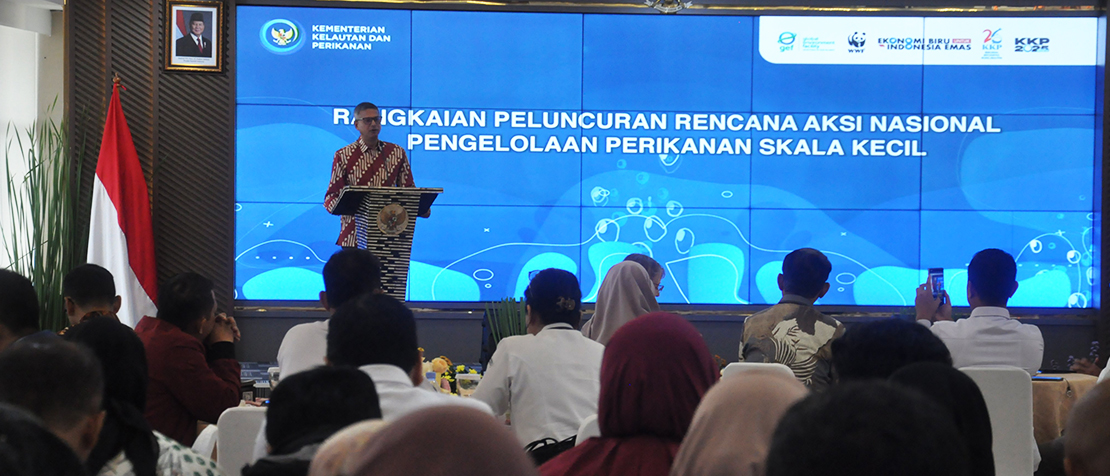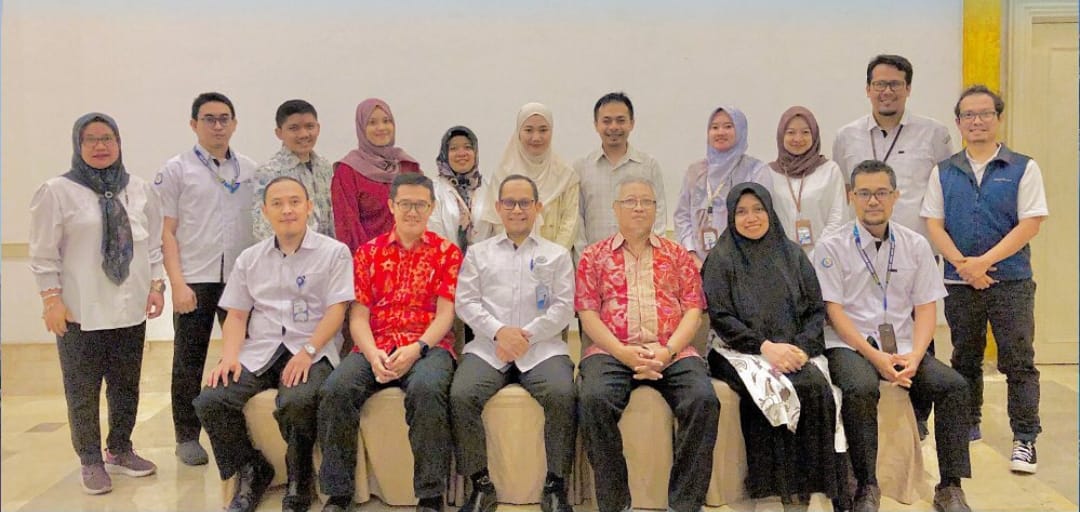Indonesia launches National Action Plan for Small-Scale Fisheries

©FAO
In a major step toward strengthening the country’s coastal fishing communities and sustainable fisheries management, the Ministry of Marine Affairs and Fisheries of Indonesia (MMAF) has officially launched the National Action Plan for Small-Scale Fisheries Management (NPOA-SSF) on 5 November 2025.
The launch comes after a drafting process in August 2025, during which the CFI Indonesia programme facilitated the finalisation of the document, marking a “global commitment” through CFI Indonesia’s support. The NPOA-SSF aligns national policy with the principles of FAO’s Voluntary Guidelines for Securing Sustainable Small-Scale Fisheries (SSF Guidelines) and national legislation (Law No. 7/2016 on Protection and Empowerment of Fishers, Fish Farmers and Salt Farmers).
“Small-scale fisheries are the cornerstone of coastal welfare and food security,”, said Hendra Yusran Siry, the Advisor to the Minister on Ecology and Marine Resources of MMAF, during the launch.
The NPOA-SSF is intended as a strategic document to protect and empower small-scale fishers, foster collaborative governance, increase supply-chain value, and ensure measurable implementation. It also integrates three key pillars: the Ecosystem Approach to Fisheries Management (EAFM); decent work and social protection for fishers, and; occupational safety for small-scale fishers across Indonesia.
“This national action plan marks a significant milestone in Indonesia’s journey toward inclusive and sustainable fisheries,”, explains Rajendra Aryal, FAO Representative in Indonesia and Timor Leste who jointly launched the document together with MMAF. “FAO will stand behind the efforts of the country to move towards sustainable and equitable small-scale fisheries and ensure that no one is left behind.”
The MMAF stressed that the NPOA-SSF’s success will be measured by the increase in fishers' income, the quality of their catch, and the sustainability of Indonesia's marine ecosystem.
Collaboration strengthens the NPOA-SSF
The NPOA-SSF was developed through extensive collaboration between MMAF, CFI Indonesia, FAO, and key national stakeholders. CFI Indonesia coordinated technical discussions and multi-stakeholder consultations throughout the drafting process.

Photo of a consultation with fisherfolk during the drafting process of the NPOA-SSF promoted by KNTI.
The Kesatuan Nelayan Tradisional Indonesia (KNTI), as Indonesia’s largest small-scale fisher organization, played a central role from the earliest stages. Having worked with the SSF Guidelines since their launch in 2014, KNTI introduced the Guidelines to fisherfolk, advocated for their principles, and collaborated with FAO to translate them into Bahasa Indonesia and disseminate them across its nationwide membership. Throughout the drafting process, they contributed to include grassroots perspectives gathered through consultations in multiple provinces and participated in all national meetings.
“Small scale fishers sustain coastal economies, provide affordable and nutritious fish, and support millions of livelihoods across the archipelago”, explains Dani Setiawan Chair of the KNTI. “With the NPOA-SSF now in place, we see strong opportunities to strengthen fisherfolk rights, expand fair access to services and markets, and deepen collaborative management with government”.
FAO’s support: training and capacity building
FAO has supported the initial phase of the initiative in the country by helping build the basis for implementing the SSF Guidelines. Already in 2015, FAO together with MMAF organised a regional workshop to raise awareness on the guidelines.
Capacity building for small-scale fisheries stakeholders has been provided through the “Implementing the Small-Scale Fisheries Guidelines for Gender-Equitable and Climate-Resilient Food Systems and Livelihoods” project that was implemented in 2021-2023. FAO ran training programmes and gave support for better post-harvest handling, market opportunities and business practices of small-scale fishers and fish workers, with particular attention to women.
This support provided groundwork that informed the NPOA-SSF’s approach to strengthen organisational capacity and value-chain integration. Together, these partners helped ensure that the NPOA-SSF reflects both international best practices and the lived realities of Indonesia’s small-scale fishing communities.
Learn more:
- SSF Guidelines website
- CFI Indonesia Programme
- Story from the field | Women in Indonesia’s Raja Ampat transform their livelihoods by making fish crackers
